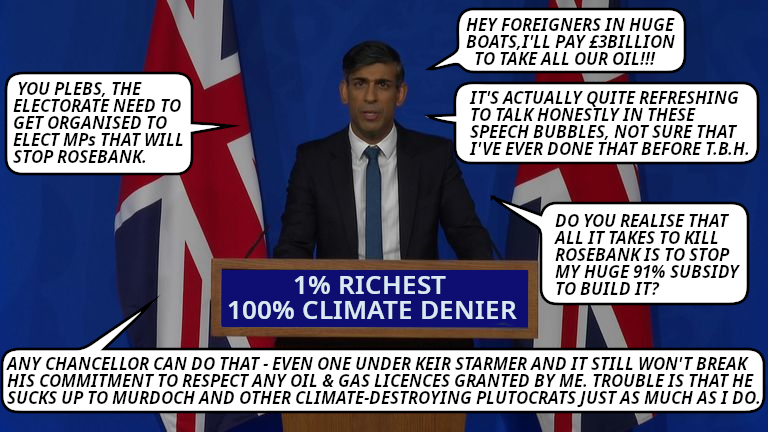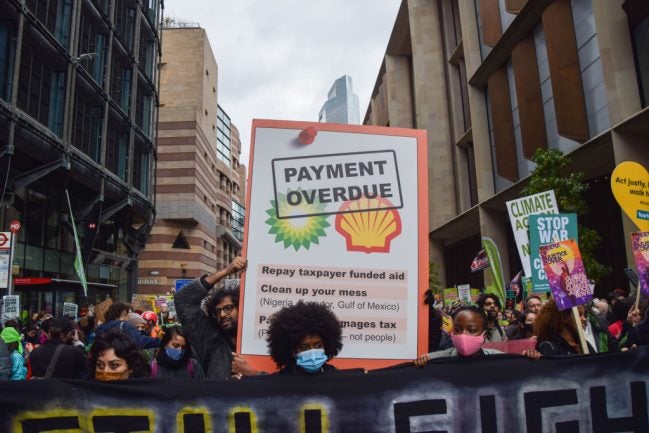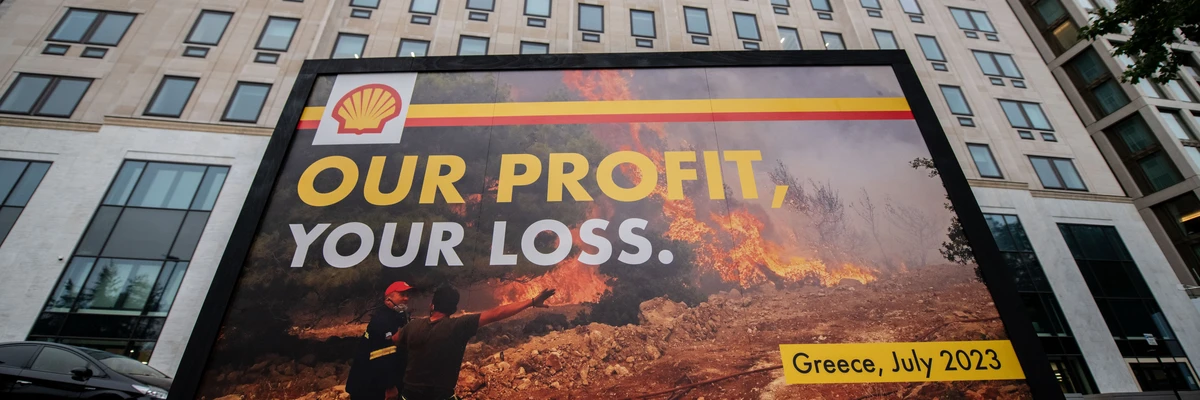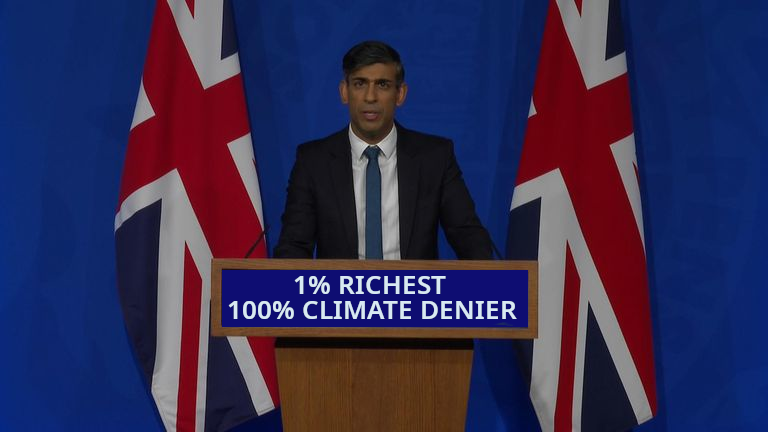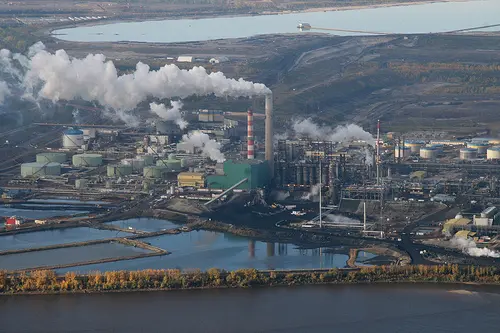Investigating the so-called ‘windfall tax’
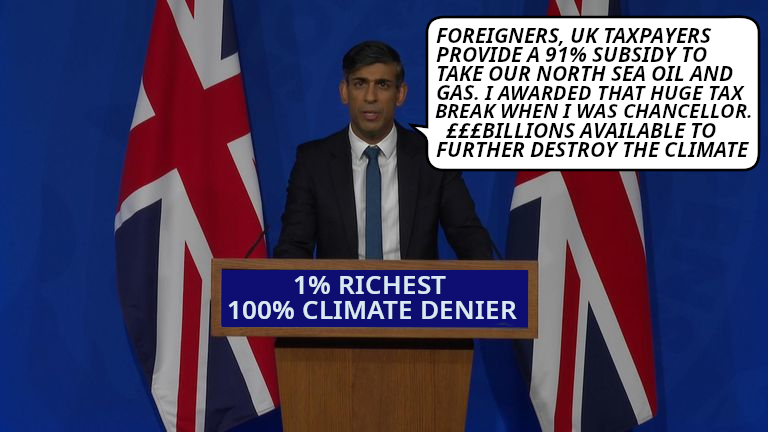
Rishi Sunak awards a huge tax break to further destroy the climate.
It’s called a windfall tax – it’s a further windfall for fossil fuel companies on top of their windfall of higher prices following the invasion of Ukraine.
…
Back in May 2022, the UK government announced the energy profits levy, as a response to the growing pressure for a ‘windfall tax’ on the massive profits being generated by companies pumping oil and gas in the North Sea. These profits were fuelled by skyrocketing fossil fuel prices in the wake of the Russian invasion of Ukraine. The levy raised the effective rate of corporation tax paid on oil and gas profits from 40% to 65%, and again to 75% in November 2022.
But, it came with a caveat. Despite the UK’s urgent need to kick its addiction to expensive fossil fuels, this government didn’t want to discourage investment in more oil and gas extraction. So they included a tax loophole to ensure that companies investing in new projects to pump fossil fuels out from under the North Sea would see their tax relief (already generous by most standards) rise to 91%. In other words, fossil fuel companies could deduct 91% of their capital investment costs from their corporation tax bill. The ‘windfall tax’ may have, on the surface, attempted to tackle the grotesque profits being raked in by massive companies in the midst of the cost of living crisis – but it also made it cheaper for these companies to extract the fossil fuels contributing to the sky-high cost of living in the first place.
At NEF, we analysed last week’s new OBR data, and found that the loophole included in the energy profits levy has massively increased the amount of tax relief which fossil fuel companies will potentially receive. We estimate that oil and gas extractors could receive up to £18.1bn in tax relief between 2023 and 2026. That’s a massive increase of £10.5bn, or 136%, from the £7.6bn they were expected to receive before the energy crisis. This is an enormous amount of lost revenue that could go to the government to be spent on lowering our energy bills or improving our public services. The OBR expects the UK oil and gas industry to pay £24.3bn in tax between 2024 and 2027, meaning that closing the tax loophole in the energy profits levy could almost double the amount of tax revenue our government could receive – and the businesses in question would still walk away with billions.
…
Even if you accept the government’s warped logic, which seeks to encourage greater North Sea extraction, the policy appears to be failing. While total potential for tax relief has risen by £10.5bn, total forecast investment has risen by just £3.4bn. This would represent an abysmal return on a government tax measure. Relief has largely been extended to investments which were expected to occur anyway, suggesting the policy is (intentionally or not) little more than a vehicle for oil and gas companies to keep most of their explosive profit growth, while the windfall tax sustains an illusion of fairness.
The energy profits levy helped pay for the government’s emergency cost of living support measures – in theory. But our energy bills remain extortionate, costing 50% more than they did in early 2022, prior to the Russian invasion of Ukraine. With the poorest households over £200 a week short of the amount they need for an acceptable standard of living, this government has still not provided enough support. Looking forward, removing the perverse tax reliefs extended to the oil and gas industry could free up almost £13bn of tax revenue between 2024 and 2026: enough to give every household in the country three £150 annual payments to help cover their energy costs.
…
It’s reasonable to compare the so-called windfall tax to Norway’s windfall tax since they are both taxing fossil fuel activities in the North Sea. The Uk’s Labour party has repeatedly said that it intends to impose a “proper windfall tax”. There was further brief mentions of this during the Labour Party’s reformulation and massive restriction of it’s green policies yesterday 8th February 2024 but it remains unclear what is intended.
What’s obviously clear is that Norway’s windfall tax has made and continues to raise huge sums for Norway. There is still a disguised fossil fuel subsidy for exploration and extraction – from what I can see it appears to be 78%. That’s a long way from Sunak’s 91% and since we’re dealing with vast sums of money, 91 – 78 = 13% of vast sums of money is still vast sums of money (as any Chancellor should realise).
…
Example:
Investment in an offshore operating asset in Year 1 is 100.
In the ordinary tax base (22%), 100 must be capitalized and depreciated linearly over 6 years. The depreciation in Year 1 is 100 / 6 = 16.7, i.e., a deduction of 16.7. This results in a tax amount in Year 1 of -16.7 * 22% = -3.7.
In the special tax base (56%), the entire amount of 100 can be deducted directly. The special tax base will therefore initially be -100. However, we must deduct the tax amount from the ordinary tax base of -3.7 from the -100. The special tax base will thus be -100 – (-3.7) = -96.3. To calculate the special tax amount, we must use the technical special tax rate of 71.8%. The special tax will thus be -96.3 * 71.8% = -69.3.
Hence, total tax on the investment of 100 in the offshore operating asset in Year 1 is
-3.7 + (-69.3) = -73, i.e., a tax deduction of 73.
In Years 2 – 6, the linear depreciation continues in the ordinary tax base. For each of these years, the tax on the investment of 100 in Year 1 is thus -3.7 in the ordinary tax base. At the same time, this tax is treated as “income” in the calculation of special tax, as the amount must be deducted in the special tax base. The special tax will thus be 3.7 * 71.8 = 2.7 in each of the years. Total tax per year will therefore be -3.7 + 2.7 = -1.
Looking at the entire period Year 1 – Year 6 as a whole, the total nominal tax for the investment of 100 in Year 1 is the sum of -73 in Year 1 and -1 for each of Years 2 – 6 (5 years), i.e., -73 + (-5) = -78, resulting in a total deduction of 78 over the period.
…
…
Despite windfall tax and record profits, Shell paid just £15 million to UK, 22p per Brit last year
By comparison Norway received £6.3 billion from Shell, over a grand per Norwegian
28th March 2023, London – Energy giant Shell paid just £15 million in taxes and fees to the UK last year on their drilling, compared to over £6.3 billion to the Norwegian government over the same period, according to Global Witness analysis of Shell’s latest tax reporting, released today.
This means Shell paid around just 22p per UK citizen, compared to the £1,171 it paid for every citizen of Norway. This £15 million is much closer to the £9.7 million it awarded its CEO in 2022, than the considerably more it paid to most other countries in which it drills.
The UK ranks 19th out of 25 countries for taxes received by Shell last year, with the likes of the USA, Germany, Qatar and Italy all receiving far more from Shell than the UK. It comes despite the introduction of a UK windfall tax that Rishi Sunak, as Chancellor, described as a “significant set of interventions”.
…
